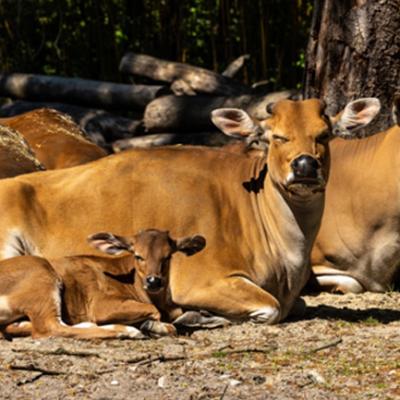
You will not find the word “vegan” in any Jain text, though in light of today’s animal rights struggles, climate change, and human wellbeing, the Jain tradition’s ethical principles obliged me to adopt a vegan lifestyle.
Vegetarian or Vegan?
As a former vegetarian who thought he could never do without his cheese, I first realized I had to become vegan while studying Jain texts in the summer of 2019. I was reading the ĀcārāṅgaSūtra, where I once again came across a powerful statement about Mahāvīra’s meditations on nature that I had read many times before:
- …Mahavira meditated (persevering) in some posture, without the smallest motion; he meditated in mental concentration on (the things) above, below, beside, free from desires…
- Thoroughly knowing the earth-bodies and water-bodies and fire-bodies and wind-bodies, the lichens, seeds, and sprouts, [Mahavira] comprehended that they are, if narrowly inspected, imbued with life, and avoided to injure them… (Hermann Jacobi 1884: 80-81, 87)
Mahāvīra was meditating with his eyes open, and in doing so was deeply moved by the fact that all forms of life do not want to experience pain. From this central insight, the Jain principle of non-violence, or ahiṃsā, was once again born as a message for all of humanity.
I was touched by Mahāvīra’s simple yet profound insight, and began to ponder how I might more closely incorporate non-violence in my own life.
Ahiṃsā Today
Jains remain the global torchbearers of Mahāvīra’s message of non-violence. Today, Jains across the world have spread this message in myriad ways. One powerful expression of non-violence comes from the many groups of Jains who have transitioned to a vegan lifestyle.
For example, in the summer of 2019 while I was reading the ĀcārāṅgaSūtra, I also happened to come across UK-based Jain Vegans “give up dairy for Paryushan” campaign on social media. In light of the extreme violence in the dairy industry, Jain Vegans encourage Jains to give up dairy during this Jain holy festival – and perhaps forever.
Jain Vegans encourage veganism because mother cows are routinely impregnated against their will, their children are stolen from them shortly after birth (often for slaughter), they are tortured for their milk, and they are sent after multiple forced pregnancies to a premature death by slaughter for the meat industry. Dairy herds, beef cattle, and other forms of animal husbandry are also, next to fossil fuels, one of the biggest contributors to climate change. For these and other reasons, Jain Vegans show us how becoming vegan avoids participation in the various forms of violence perpetuated by the dairy industry.
After reading the ĀcārāṅgaSūtra and hearing Jain Vegans’ important message, I realized I had no choice but to become vegan. If I was ever going to be able to teach Jain philosophy, and if I wanted to have a clearer conscience free of the cognitive dissonance my cheese-loving lifestyle required, veganism was going to be a moral imperative.
Conclusion
The Jain tradition views the world as an interconnected web of life. Every action that we take as individual humans and as a society has an effect on this ecological system. The way we eat plays a tremendous role.
Consequently, Jain ethics requires us to seriously consider veganism.
Are you ready to make the critical transition to a vegan lifestyle, for animals, the planet, and human health?
You can read more about Jain veganism here. Please also join my course “Jain Philosophy in Daily Life” here at Arihanta Academy [Institute] to learn more!

